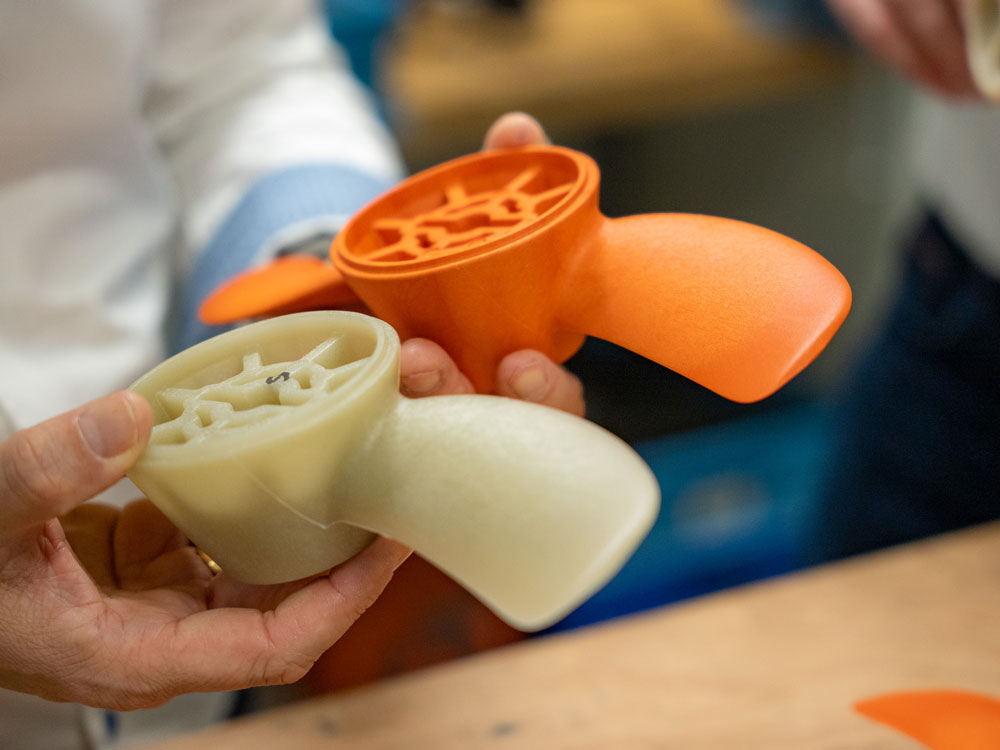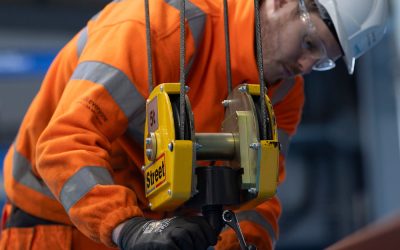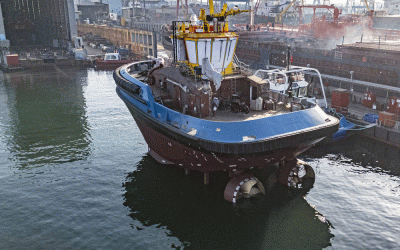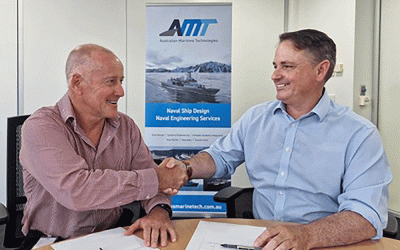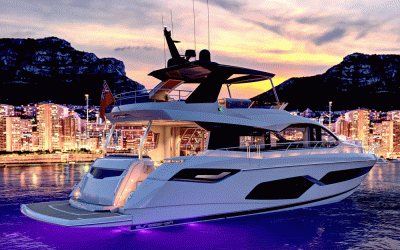Electric and hybrid marine drive manufacturer Torqeedo has announced that it will build its future propellers from “100% recycled ocean plastics”, as a small but firm step towards addressing the plastic pollution crisis.
Torqeedo’s Advanced Engineering Team is currently testing recycled ocean-bound polyethylene terephthalate (PET) and polypropylene (PP) plastic pellets, which, the team claims, could reduce CO2 impact by more than 80% compared to the use of conventional materials. Team member Florian Deger comments: “We’re helping to develop a circular plastic economy, transforming used plastics from trash to treasure.”
Torqeedo CEO Fabian Bez acknowledges that there might be some scepticism regarding this approach, pointing out: “Many manufacturers hesitate to use recycled materials, based on outdated perceptions of inferior material quality.” However, Torqeedo states, the pellets are “very close in quality” to virgin plastic, thanks to “strict processes and advanced recycling equipment”. Bez adds: “Every step we take toward lowering boating’s environmental and climate impact improves our human and natural environments, and helps to preserve our boating lifestyle.”
According to stats released by CleanHub, 14 million tonnes of plastic are entering our oceans each year. Long-term projections make for grim reading: by 2050, in terms of weight, there will likely be more plastic than actual fish in the ocean. Deger says that these figures played a major role in spurring Torqeedo into action.
“The typical way to integrate new materials is to start with a small percentage – maybe with just 10% or 20% recycled content,” Deger says. “However, we’ve made our prototype propellers from 100% recycled ocean plastics, and we’re thrilled to report that they surpassed all benchmarks in the first round of environmental and stress testing.
“After some slight adjustments, we will produce the next prototypes in Torqeedo orange. These will be very similar to the propellers that are in use today. It feels good to hold one of the prototypes in my hands and know we are keeping plastic bottles and pollution out of the waters we all love to explore on our boats.”
Bez adds that, pending successful testing, the first Torqeedo products containing ocean-bound plastics will be commercially rolled out “within the next year.”
